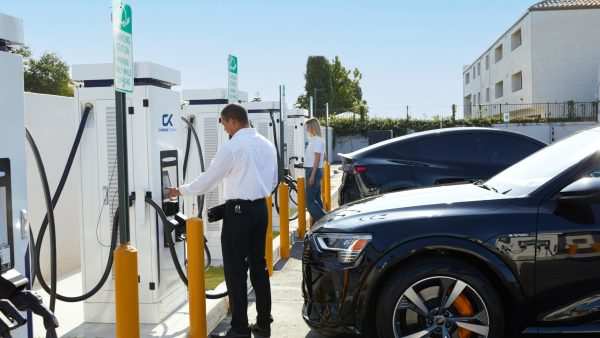As electric vehicle (EV) adoption accelerates across North America, the need for a robust and reliable public charging infrastructure becomes increasingly urgent. One of the critical players in this ecosystem is the Charge Point Operator (CPO). Understanding the role of CPOs, along with how they differ from charge point owners, is crucial for anyone involved in the EV industry.
A recent study by J.D. Power revealed that concerns about the availability and reliability of public charging stations are among the top barriers to EV adoption in the United States. This finding highlights the necessity for a sound and scalable charging infrastructure across North America. The development and maintenance of this infrastructure are primarily the responsibility of CPOs, making it essential to comprehend their role in the rapidly evolving DC fast-charging market.
What is a Charge Point Operator (CPO)?
Charge Point Operators (CPOs) are businesses that manage the backend operations of public EV charging stations. Their primary function is the resale of electricity to EV drivers through these stations. In the public charging market, CPOs are the main players, ensuring that charging stations are functional, reliable, and accessible to users.
To better understand the role of a CPO, consider this analogy: in a restaurant, the chef is responsible for selecting, preparing, and presenting the ingredients that make up a customer’s meal. Similarly, a CPO is responsible for selecting, installing, and maintaining the charging stations that EV drivers use. Just as the quality of a meal depends on the chef’s skills, the reliability and efficiency of a charging station depend on the expertise of the CPO.
What Does a CPO Do?
The responsibilities of a CPO can be broadly categorized into four areas:
- Purchase, Deployment, and Operation of Charging Infrastructure:
- CPOs are experts in the latest charging technologies, including both AC and DC fast chargers. They are responsible for recommending and procuring the appropriate charging stations for specific sites, preparing these sites for installation, and managing the installation process. Once the stations are operational, CPOs continue to manage and maintain them, ensuring they remain functional and efficient.
- Ensuring Reliable Charging Services for EV Users:
- After installation, CPOs are tasked with ensuring that the charging stations provide a smooth and consistent experience for users. This involves preventative maintenance, optimizing stations to meet evolving customer demands, integrating new technologies as needed, and managing pricing to comply with local and federal regulations.
- Managing Network Connectivity and Software Platforms:
- A significant part of a CPO’s role involves using backend software to manage energy consumption and delivery at charging stations. CPOs aim to balance electricity loads across their network of stations, ensuring fast and equitable charging for all users. They also optimize the flow of electricity through their sites, utilizing smart charging technology to minimize costs and grid burdens.
- Futureproofing: Managing Scalability:
- The EV charging industry is dynamic, with charging technology advancing rapidly. Today’s most powerful DC fast chargers can deliver up to 400kWh, a significant leap from the 50kWh stations considered fast just a few years ago. CPOs must be prepared to scale up their infrastructure to meet future demands, ensuring their stations can accommodate advancements in EV and battery technology.
The Importance of Differentiating Between CPOs and Charge Point Owners
While CPOs are responsible for the backend operation of charging stations, charge point owners play a different role. Charge point owners finance the charging infrastructure and may own the physical charging stations.
Understanding these distinctions is vital because the roles can sometimes overlap. A CPO might also own the charging infrastructure, especially in cases where the business has the financial and technical resources to do so. This flexibility allows businesses to streamline operations and reduce reliance on external partners, which can be particularly advantageous in a competitive market.
The Future of CPOs in the EV Charging Ecosystem
The DC fast-charging market is still young, with many opportunities for growth and innovation. As the market matures, we may see further integration of the roles of CPOs and charge point owners, particularly among larger corporations with the resources to manage both functions.
For investors and startups looking to enter the market, understanding the role of CPOs and their relationship with charge point owners is crucial. As the industry continues to grow, these relationships will become increasingly important in ensuring the widespread adoption of EVs and the development of a reliable public charging infrastructure.
